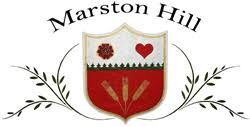The Bulgarian Example
During the Second World War, Bulgaria, a small South-Eastern European kingdom close to Greece and Turkey, newly liberated from the Ottoman Empire, became a Nazi ally and was supposed to assist Germany in the war, including a promise to deport all Bulgarian Jews. However, Bulgaria managed to save each one of their Jews and Gypsies. In that respect, Bulgaria is alone in the world. In fact, there were more Jews and Gypsies in Bulgaria after the war than before. But how did Bulgarians manage to do that given that the government had committed to assist the war? Many countries which were neutral but lost more Jews than Bulgaria. How was that possible?
It appears that this ’miracle’ was a collection of many courageous acts of individuals and organizations. The living history is the personal stories one can collect from people who experienced, witnessed or were related to those who experienced the events.
In our case, such stories reveal the widespread interfaith connections between Jews, Muslims and Christians which characterized the region at that time. Jews celebrated Jewish holidays with their non-Jewish friends and neighbors — and the reverse. Non-Jewish friends donned Stars of David when visiting their Jewish home-imprisoned friends.
A baker recalls figuring he could hide five or six Jews in one of his ovens.”What are they guilty of? Only of being Jewish!”
Elderly Boris Kharalampiev, an Eastern Orthodox bishop, recalls his role in stopping the deportations of Jews in 1943 from his city, Pazardjik. His wisdom resonates with immediacy: ”Everyone is entitled to his own faith. No one should violate the intimate, spiritual life of another.”
Samuel Frances, whose family suffered from the anti-Semite measures, recalls: Before WW 2 some 48 thousand Jews lived in Bulgaria. By the end of the war they were approximately 50 thousand. Yes, it is a fact. We not only did not diminish in number, we actually grew! In the war Bulgaria was Germany’s ally. Under the pressure of Berlin, in 1940, the government of Bogdan Filov adopted the nazi-style Law Defence of the State. It restricted the Bulgarian Jews’ right of passage, ousted them from civil service, set down the smallest coupon rations for them and forced them to wear the humiliating yellow stars on their sleeves. However, even then this law triggered off a nationwide public outcry, and the people sabotaged it on a massive scale. Even Bulgaria’s joining the Trilateral pact on March 1, 1941 did nothing to alter the Bulgarian people’s attitude towards the Jews.
On January 8, 1942, the so-called ”final solution” was adopted by the nazi leadership at the Vanzee residence near Berlin, launching the systematic annihilation of the Jews in occupied Europe in death camps. This ”solution’ also affected the states, allies to the Reich. Under pressure from Hitler, a special Commissariat for Jewish Affairs was set up in Bulgaria to prepare the deportation of the Bulgarian Jews to Poland. As a first step, those living in Sofia were interned to the country, and their property was confiscated. The planned deportation could not remain secret for long. In the spring of 1943, stormy debates were initiated in Parliament by its Deputy Chair Dimitar Peshev. A number of public and professional organizations opposed the handing of the Bulgarian Jews over to the nazis – the Bulgarian Academy of Sciences, the Bulgarian Pen-club, the Doctors’ Union, sports associations, as well as some prominent figures.
The Bulgarian Orthodox Church played a significant role in the rescue of the Bulgarian Jews. Its Holy Synod, headed by Metropolitan Stefan came out with a brief appeal to the government and to the Bulgarian monarch Boris III, firmly condemning any attempt at complicity in the genocide against the Jews. And when the authorities did make their first move to dispatch the first group of Jews to Poland, Metropolitan Cyril made an address in the second biggest Bulgarian city of Plovdiv, stating that if a deportation was initiated, he and the entire clergy would stand on the railway tracks to stop it.
The nationwide outcry came to a head during the traditional processions marking the Day of the Slavonic alphabet May 24, 1943, which developed into an open demonstration against the anti-Semitic policy of the government. Boris III found a legal loophole to save the Bulgarian Jews. He set up labour camps for the male Jews, presenting the Nazis with the thesis that being Bulgarian subjects, they cannot be sent outside the realm’s boundaries in time of war.
Berlin knew well that any attempt at overt pressure on Bulgaria on the issue of the Jews might lead to complications. It should not be forgotten that the tide had turned and what was happening at the front in the spring of 1943 was not to the advantage of Germany or to its allies. That is why ultimately, the nazis had to resign themselves to Bulgaria’s firm stand. Thus, 54,000 Bulgarian Jews were wrenched from Hitler’s grip.
The defeat of the Germans on the Eastern front made the authorities to give up their intentions of deportation. In September 1944, when Bulgaria stated that it would no longer be an ally to the Germans and joined the anti-Hitler coalition instead, the rights of the Jews are restored. With the salvation of some 50 thousand lives in the most devastating war mankind has known, Bulgarians have written their own – unique – page, full of dignity and humanism, in the European history.

